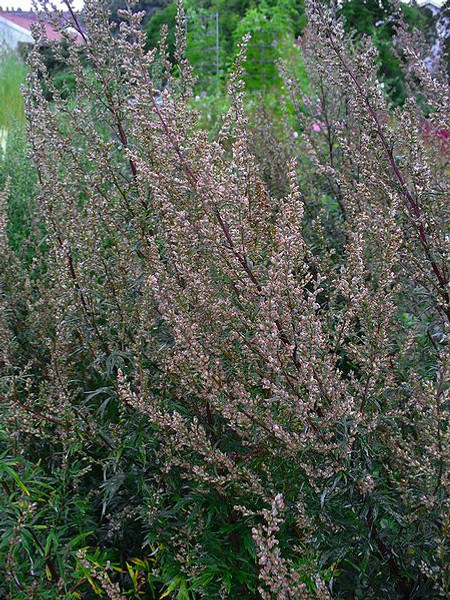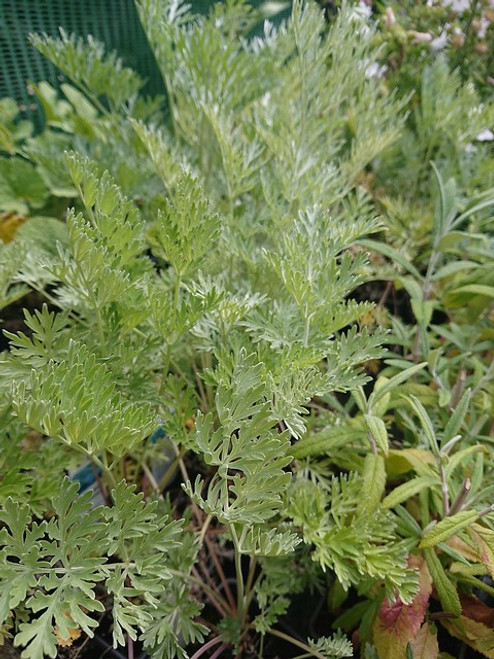Plant Overview
A native wildflower steeped in folklore. For hundreds of years it was made into garlands and hung over doors to deter evil spirits. It has also been used in place of hops for beer, as a moth repellent, herbally to cure nervousness in women(!) and to cure consumption.
Mugwort is a large plant covered in small white flowers from August to October. The red stems make interesting additions to dried flower arrangements. It will grow in pretty much any soil in full sun or partial shade and lends a wild feel to a border. In the wild it can be seen growing on verges, field boundaries and wasteland.
Height and Spread: 1-2m x 60cm
Common names: Mugwort; Apple Pie; St. John's Herb; Bollon Bane; Felonherb; Midge PLant; Sailor's Tobacco; Old Uncle Henry; Naughty man; Maiden's Wort.
The word Mugwort comes from the old English 'Mucgwyrt', meaning Midgewort for its insect repellent qualities.
History and Folklore
There is a saying in Scotland and Northern England, although there is no record regarding how nettles or Muggins (Mugwort) should be used:
If nettles were used in March, and Muggins in May
Many a bra'lass wudna turn to l'clay
From century collection of Anglo-Saxon medical texts and prayers found in the 10th century book 'Lacnunga' comes this poem:
Eldest of worts
Thou hast might for three
And against thirty
For venom availest For flying vile things
Mighty against loathed ones
That throughout the land rove.
Gerards Herbal (1597) says of Mugwort's virtues:
"Pliny saith, That the traveller or wayfaring man that hath the herbe tied about him feeleth no wearisomnesse at all; and that he who hath it about him can be hurt by no poysonsome medicines, by any wilde beast, neither yet by the Sun it selfe; and also that it is drunke against Opium, or the juyce of blacke Poppy. Many other fantasticall devices invented by Poets are to be seene in the Works of the Antient Writers, tending to witchcraft and sorcerie, and the great dishonour of God: wherefore I do of purpose omit them, as things unworthy of my recording, to your reviewing."
It was believed that if you dug under mugwort on Midsummer's Eve you would find a 'coal'. Carrying the coal protected the bearer from plague, ague, burning and lightning strike. It also protected them from witchcraft.
The plant has a long association with St John the Baptist and it was believed that the saint wore a girdle of the herb during his time in the wilderness. The plant is known as St John's plant in several European countries and was traditionally collected there on St John's Eve to give protection against all illnesses, evil and misfortune.
It is thought that Romans may have placed Mugwort in their sandals to prevent aching feet on marches.
And if a Footman take Mugwort and put it into his
Shoes in the Morning, he may go forty miles
Before noon and not be weary
~William Coles, The Art of Simpling, 1656







